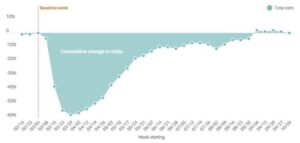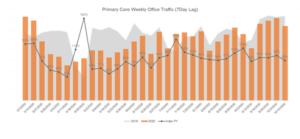CMS announced that starting November 10, Medicare beneficiaries can receive coverage of monoclonal antibodies to treat COVID-19 with no cost-sharing during the Public Health Emergency (PHE). CMS’ coverage of monoclonal antibody infusions applies to bamlanivimab, which received an Emergency Use Authorization (EUA) from the FDA on November 9.
“Today, CMS is announcing a historic, first-of-its kind policy that drastically expands access to COVID-19 monoclonal antibodies to beneficiaries without cost sharing,” said CMS Administrator Seema Verma. “Our timely approach means beneficiaries can receive these potentially life-saving therapies in a range of settings – such as in a doctor’s office, nursing home, infusion centers, as long as safety precautions can be met. This aggressive action and innovative approach will undoubtedly save lives.”
CMS anticipates that this monoclonal antibody product will initially be given to health care providers at no charge. Medicare will not pay for the monoclonal antibody products that providers receive for free but this action provides for reimbursement for the infusion of the product. When health care providers begin to purchase monoclonal antibody products, Medicare anticipates setting the payment rate in the same way it set the payment rates for COVID-19 vaccines, such as based on 95% of the average wholesale price for COVID-19 vaccines in many provider settings. CMS will issue billing and coding instructions for health care providers in the coming days.
CMS anticipates the announcement will allow for a broad range of providers and suppliers, including freestanding and hospital-based infusion centers, home health agencies, nursing homes, and entities with whom nursing homes contract, to administer this treatment in accordance with the EUA, and bill Medicare to administer these infusions.
Under section 6008 of the Families First Coronavirus Response Act (FFCRA), state and territorial Medicaid programs may receive a temporary 6.2 percentage point increase in the Federal Medical Assistance Percentage (FMAP), through the end of the quarter in which the COVID-19 PHE ends. A condition for receipt of this enhanced federal match is that a state or territory must cover COVID-19 testing services and treatments, including vaccines and their administration, specialized equipment, and therapies for Medicaid enrollees without cost sharing. This means that this monoclonal antibody infusion is expected to be covered when furnished to Medicaid beneficiaries, in accordance with the EUA, during this period, with limited exceptions.
View the Monoclonal Antibody COVID-19 Infusion Program Instruction.


